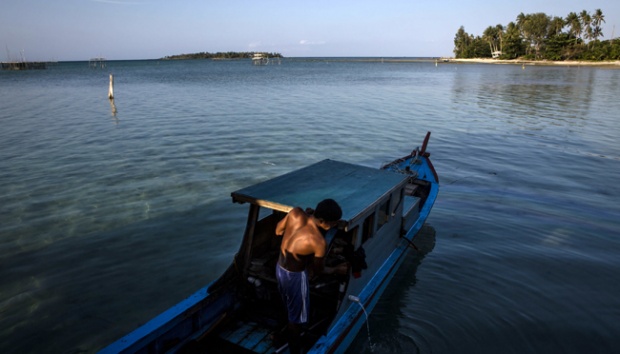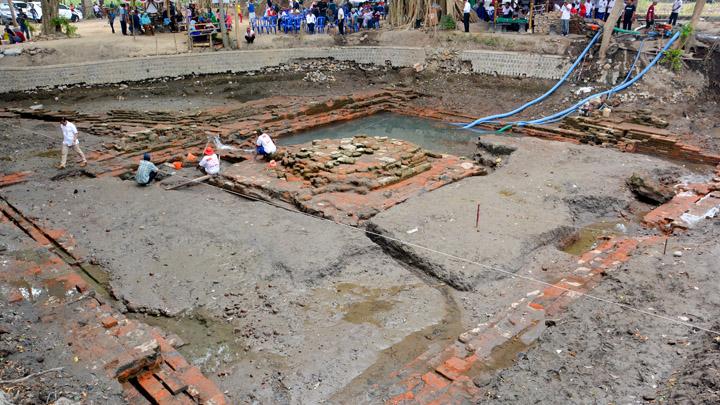
TEMPO.CO, Jakarta - Previously, fishing with bombs was common practice in the waters south of Solor Island. The fish disappeared, and coral reefs were decimated. Nowadays, people in the vicinity eagerly keep the environment safe and earn their livelihood from the sea.
"Fish…there are fish…" The cries of the boatmen rose and fell on the seas. In the small boat, other crew members quickly threw out the net, while the boat circled around the fish aggregating device known as the rumpon, or simply fish house, in the waters south of Solor Island, East Flores, East Nusa Tenggara. The boat owner, Kamludin Latif, was relax giving instructions.
Not long after, the group dragged the net in. The not-too-large fish jumped about in the net and were stored in the boat that quickly headed towards land. Soon, a portion of the catch was being grilled and people sat down to enjoy a meal together. "It’s a tradition here. The first harvest, we have to feed the community," said rumpon owner Gabriel Smara, 40, a few weeks ago.
Kamsudin Latif is not the rumpon owner, but Gabriel who had not long ago built the rumpon, the one they had circled. He was inspired by the rumpon of the residents of neighboring village BubuAtagamu, who are engaged in the Program to Save Sea Biodiversity. Kamsudin and Gabriel divided up their catch equally.
Though getting only half the catch, Gabriel was cheerful. The catch from the fish house would be an additional income for him. Before, he could only depend on the catch he made in his tiny sampan (skiff), and earn a tiny bit more from harvesting his field.
Residents of Lowograran village in SouthSolorsay the southern waters are now riddled with fish. "There are no longer any bombing boats," he explained. Prior, he could only manage to bring in a small pan of fish because the bombing was so rampant, carried out by people out to get big catches.
Another fisherman of Bubu Atagamu village, Nicolaus Briwa, related a similar story. Despite being still heavily dependent on his tiny sampan, he now manages to bring in a bucketful of fish each time he goes out to sea. "It earns me around Rp100,000," he said. "Previously, it was difficult to get a good catch. Sometimes we could only get the very tiny fish the bombing crews had no need for."
Villagechief of BubuAtagamu, Benedictus Basajawan, verified that fishing with bombs in his village’s sea "front yard" had only stopped some two years ago. This was after the Program to Save Sea Biodiversity was begun on the South Lebao Beach in 2015 by the Community Development and Empowerment Foundation (YPPS) and the Tanah Ile Boleng Foundation (YTIB), both are supported by the Critical Ecosystem Program Fund (CEPF) and the Indonesia Bird Foundation. "We introduced the idea in public meetings in order for the community to begin to grasp what we were aiming for," said Benedictus.























